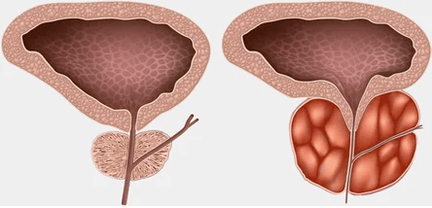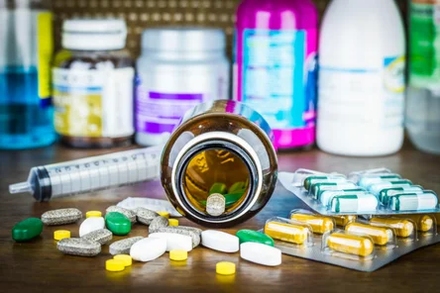
Medication therapy is most often prescribed during treatment for prostatitis.During the transfer, the patient should take in different categories.Some are designed to eliminate the symptoms that cause discomfort, while others targeted the affected gland directly, eliminating the most important cause.At the same time, drugs differ in terms of exposure, as some are designed to eliminate acute and others against chronic.Let's look at the most popular drugs used to treat prostate inflammation.
Types of medicines needed for prostatitis
All medications prescribed by your doctor can be divided into multiple categories by using the method:
- Tablets and capsules- They are accepted orally, absorbed moderately in the body, and in case of capsules, absorption occurs much faster, as all components fall short after a short period of time after the gelatin membrane is dissolved.
- Injections- It may also be liquid and powdered drugs, which are later diluted in the functioning fluid, usually in painkillers, administered intramuscularly or intravenously, and the effect may be noticeable in a few minutes.
- Rectal suppositories (candles)- Anti -anti -inflammatory, antibacterial and analgesic effects, the patient gets into the rectum when he is on his side, and in this situation he has to perform about half an hour to make the drug completely dissolved and absorbed.
- Introduction- A group of drugs whose maximum positive effect is only used in the case of direct entry into the affected gland, the method is used in a hospital because the introduction is carried out through the urethra.
- Microclisms.

It is worth noting that certain types of drugs can be sold in multiple forms at a time, such as tablets and suppositories, so the attending physician must necessarily indicate this property.
The most popular preparations for treating prostatitis
Treatment of prostatitis with drugs is a rather complex procedure that requires your doctor to choose the choice of appropriate medicines that not only relieve pain and eliminate other symptoms by manifestations, but also promote the cause of the disease.The disease itself can be manifested in acute or chronic forms of different origins, and can provide the patient with the most diverse discomfort, limiting it, as it is in natural issues, thus leading to complete infertility.
Classic tablets, intramuscular injections and candles can be used to treat the rectum in the treatment of prostatitis.The choice of medicine depends directly on the need for the urgency of components to the affected organ.
Additional funds
Treatment of prostatitis is not limited to the list of several drugs.Professionals can use other types of drugs.
Fluoroquinolons
Forchinolones - antibacterial drugs used to treat tuberculosis of prostatitis.These funds are used in a comprehensive manner and can be prescribed the patient in a course of one or more drugs.
Cephalosporins
Cefalosporins are antimicrobial drugs that are used to combat specific bacteria.
Such drugs may be a wide and directional action spectrum, and the need for it or its use depends directly on the form of the disease and the cause of its occurrence.
Macrolides
Macrolides are rarely used in the treatment of prostatitis because they seek to fight individual bacteria, such as mycoplasms and chlamydia.Incidentally, a disease such as chlamydia is often accompanied by prostatitis, so doctors prescribe more tests at the same time to identify prostate gland problems in the early stages.
In the acute manifestations of prostatitis, your doctor can prescribe several different categories of medicines at the same time.This approach allows you to fight effectively as symptoms and directly as a disease.
Painkillers
The vast majority of painkillers occur when there is an acute pain syndrome, which is chronic, but more often prostatitis.The premium of strictly not recommended drugs outside the group related to this group is to eliminate the disease as the body quickly gets used to them and will need to increase the dose to achieve an analgesic effect, which can negatively affect the liver and kidneys.The course of painkillers is prescribed separately.
Alpha blockers and muscles
The main purpose of these groups of drugs is to relieve the tension from the deteriorated muscles of the bladder, the urethra channel, and to reduce the pressure of the pelvic area.This means that they can help you get rid of the feeling of discomfort and normalization of urinary processes.
Immunomodulators
Such drugs contain basically natural components, in the case of prostatitis - extracts based on the tissues of cattle prostate gland.All of the drugs all have a general principle of action, allowed:
- slow down the process of inflammatory processes;
- Increase the sound of the bladder's smooth muscles and walls;
- minimize the possibility of blood clots;
- Improve blood circulation in the prostate gland;
- Reduce the amount of prostate.
Immunomodulators can also be used for many diseases, including chronic prostatitis, acute non -infectious prostatitis, and prostate adenoma.
In addition, these devices are actively used for preventive purposes, which helps to avoid the occurrence or decline of the disease.
Vitamins and biological additives
This means that it belongs to this category, it can lower the level of inflammation, improve fluid outflow and relieve stagnant phenomena.The need for such drugs in the body stems from insufficient intake of beneficial nutrients, especially during antibiotics.
Prostatitis is a rather complex disease that is treated only by a real specialist.Independent selection of drugs is not strongly recommended, as this approach is largely likely to be the likelihood of complications infertility, impotence and even the risk of cancer.The use of funds from prostatitis is a medical consultation without surgery to get rid of the disease.In addition, independent treatment is complicated by the inability of accurate diagnosis, as it requires appropriate equipment and knowledge.
It should also be remembered that most of the drugs used to treat prostatitis are quite toxic and some species are simply incompatible.If you feel pain in the pelvis during urination, emptying, or ejaculation, you often go to the toilet and generally cannot empty the bladder, do not take risk - consult a doctor.Not only does it prevent the disease from being harmful, it can also avoid the formation of its chronic form that you need to live through.In addition, your sexual function will not deteriorate and you can have normal and healthy offspring through timely treatment.




































